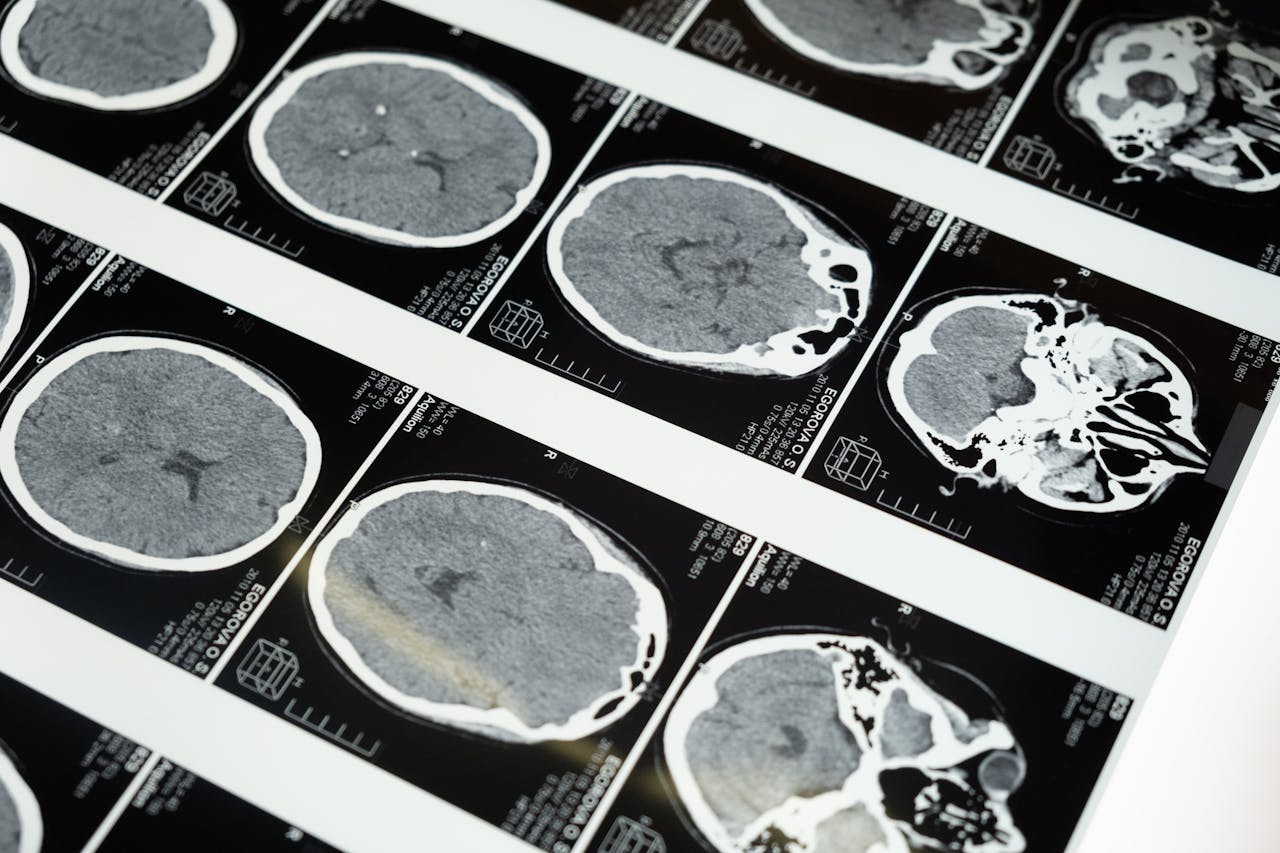In simplest terms, sleep meditation is the process of focusing the mind and relaxing the body to help one get to healthy, restorative sleep. It is a matter of paying attention to your breathing, your feelings, and possibly some visualization to calm you down. Meditation is not a practice of monks sitting on a mountain, it can be done right in bed!
To me, meditation for sleep is like a mental ‘stop’ sign. It helps to stop the stress, the problems, and all the negatives that our brains love to churn just before we are due to sleep. From my practice as a psychologist I have seen how effective sleep meditation is in treating insomnia and other sleep disorders caused by anxiety.
What is Sleep Meditation
Sleep meditation is one of the techniques which are aimed at helping a person calm down, both in his or her thoughts and muscles, prior to sleeping. This form of meditation entails paying attention to your breath, going through your body looking for areas of stress and then using imagery to clear your mind, hence making it easier to sleep. Of all the factors that are said to cause sleep disturbances, stress and anxiety take the lion share. Sleep meditation also assists in reducing the impact of stress in the body by decreasing cortisol level; hence, it is a relaxation technique.
Incorporating body scan, relaxation noises and guided images, sleep meditation brings about mental relaxation and triggers the parasympathetic system. It gets more likely that the brain waves slow down to theta and delta which are associated with restorative sleep. Sleep meditation was also revealed to decrease stress by reducing cortisol while raising melatonin which is vital for sleep. It also promotes health, sharpens the mind and decrease the chances of diseases such as diabetes and heart diseases, which makes it an essential practice for healthy ageing.
Benefits of Sleep Meditation
Sleep Meditation can honestly enhance the quality of sleep and the quality of life. For the person who is struggling with insomnia or anxiety, or suffers from chronic pain, this approach is quite effective and natural. Sleep Meditation is designed to help the brain relax, the body to transition out of the sympathetic state, and thus, get good sleep. It empowers people to recharge and heal; people wake up the following day being fresh.
Reducing Stress and Promoting Relaxation
The idea behind Sleep Meditation is to shift the body from the stress response of fight or flight by engaging the body’s rest and digestion system. From my experience, some clients commented that practicing Sleep Meditation makes them feel that they are fully on the ground and relaxed before going to bed.
Research carried out among adults from the United States and Europe reveals that between 30 and 35 percent of people have sleep disorders which are often caused by stress and anxiety. By going through Sleep Meditation those factors can be reduced, and for that reason, one can be able to have a faster and more comfortable sleep.

Combating Insomnia
Sleeplessness is prevalent with global prevalence rates of at least 8-10%. For instance, Sleep Meditation has great potential to eradicate insomnia because it helps in reducing the rate of thinking that causes people to lose sleep. Another study conducted in 2019 revealed that Sleep Meditation, which is a type of mindfulness-based intervention, positively impacted college students’ sleep quality. Most importantly for those with chronic insomnia, practice can alleviate symptoms in the long-term, and allow people to sleep for longer, uninterrupted periods.
Improving Brain and Physical Health
Apart from extending sleep time and enhancing sleep quality, Sleep Meditation also assists in optimizing brain functions and the detoxification processes of the brain during the period of sleep. Dr. Young’s studies reveal that during sleep, the brain has the vital function of washing out toxic substances that are dangerous to the brain.
Why is Sleep Meditation Important for the Brain
The Science of Sleep Meditation and Brainwaves
In my practice as a psychologist I have realized that stress, anxiety and sleeplessness are closely related and cause havoc in an individual’s well-being. This cycle is where sleep meditation becomes a powerful solution to the problem and it is not just a tool that makes a human being sleep but also helps the brain. As an important aspect of the brain, sleep meditation is crucial in making the brain to be able to deal with daily stress and pressures by relaxing.

What we need to know when we discuss sleep meditation is the effects it has on the brain and how it works. Sleep meditation helps to guide the mind into a state of slower brain waves, from the beta which is linked to active thinking, alpha and theta states. Alpha waves should be produced when we are renewing our strength, and theta waves are created when one is more creative and spiritual. This change in the brain is central to why sleep meditation is a very effective way in enhancing the quality of sleep.
Research and Statistics on Sleep Meditation
A study done in 2020 showed that participants who engaged in sleep meditation showed improvement in slow-wave sleep or what is often referred to as deep sleep that helps restore the brain and the body. During our sleep, the brain is actively involved in activities such as memory consolidation, emotions regulation and cells repair works.
The part played by sleep meditation in promoting the kind of deep sleep lacking among 70 million inhabitants of the United States cannot be overemphasized. Additionally, it is estimated that twenty percent of the European population is chronically insomnia and since stress is a significant cause of insomnia then sleep meditation will greatly assist them.
Sleep Meditation and Stress Reduction
Stress is one of the biggest foes of the brain when it comes to sleep. Stress leads to high cortisol levels, and these hormones disrupt our biological rhythms that concern sleep. Sleep meditation has the same effect as other meditations by invoking the parasympathetic nervous system which in turn reduces cortisol levels and promotes a ‘rest and digest’ mode.
This procedure also helps in bringing down the sensations of the amygdala, which is the brain’s emotional control panel. With time, the practice of sleep meditation every day results to a shrinkage of the size and functionality of the amygdala which in turn decreases stress level hence helping people maintain a balance.
Cognitive Benefits of Sleep Meditation
Apart from stress, sleep meditation has a profound effect on cognition. The results showed that the hippocampus, which is the area of the brain associated with memory and learning, benefits from a schedule for practicing meditation.
Research has confirmed that sleep meditation is capable of enhancing neuroplasticity in the brain which makes it easier to create new neural connections that enhance cognitive functions like focus and memory. Thus, for those who are constantly multitasking, or simply got tired in the head, it is very useful to increase the performance of the brain.
A Sustainable Solution for Sleep Disorders
From the clinical point of view, sleep meditation is also a non-pharmacological, efficient, and cheaper approach to people suffering from sleep disorders. While medication usually has side effects to it, sleep meditation is a natural remedy that anyone can do and does not require any equipment at all or much time. Any technique such as body scan or progressive muscle relaxation helps in leading the brain towards the state of relaxation and hence helps in falling asleep as well as helps in making the person stay awake during the night.
As a part of sleep meditation, the brain is protected by diminishing stress, enhancing cognitive performance and promoting proper sleep. The best thing I found about it is that it is not only helpful for mental health but also gives the brain the rest it deserves. Anyone who is facing sleep disorders should consider practicing sleep meditation to be one of the most effective changes that should be made in their everyday lives for the sake of their long-term mental and physical well-being.
How does Sleep Meditation Help to Fall Asleep Faster
Having worked, as a psychologist I have realized that sleep meditation is a perfect tool in helping people who find it hard to fall asleep. Many people today face incredible pressure, stress, and anxiety—states that do not allow the brain to relax before going to bed. Sleep meditation can then be described as a practice that creates a transition from waking state to sleep, or rather sleep transition practice.
The Science Behind Sleep Meditation
Sleep meditation aims at relaxing the body and hence operates on this relaxation response. It reduces the heart rate, decreases cortisol levels, and stimulates more effective, more regular breathing. All these physiological changes are similar to the physiological changes that occur during sleep and help the mind to let go of the stressor events of the day.
As it turned out, approximately 35% to 50% adults in the worldwide population suffer from insomnia symptoms, and this is very concerning. In the United States, more than 60 millions Americans have some form of sleep disorder. By practicing sleep meditation, these numbers are likely to be reduced because it sets away a routine of relaxation before the bed.
Shifting Brain Activity for Faster Sleep
In addition, sleep meditation changes the electrical activity in the brain from the beta waves which are characteristic of wakefulness and the alpha and theta waves which are characteristic of relaxation and creativity respectively. This shift is important in enabling people to sleep faster. In Europe alone 10% to 60% of the adult population suffers from chronic insomnia and there has been a recent focus on the use of mindfulness and sleep meditation as a form of therapy.
A Psychological Perspective
Psychologically, sleep meditation can be a useful way of distracting the mind from overthinking and stress, two factors that are largely associated with insomnia. It enables people to cease dwelling on anxieties about what may go wrong in the future or that which has already gone wrong in the past. With time, this kind of mindfulness practice also proves useful in the ability to fall asleep as well as improving the quality of sleep.
The Transformative Power of Sleep Meditation
Sleep meditation is not a one-time solution for sleep problems. When practiced regularly it can alter the body’s ability to unwind and to get the mind ready for sleep. Being licensed clinical psychologist and integrative medicine advocate, I have witnessed the impact of sleep meditation for those who have difficulties with falling asleep.
How to do Sleep Meditation
Sleep meditation is one of the best approaches you can recommend to anyone who has been struggling with sleepless nights and never ending flipping over. Our lives are fast-paced and often our brains never receive the signal that they need to rest or take a break. Trust me, you’re not alone! It has been estimated that 50-70 million Americans experience some form of sleep disorder and 30% of Europeans. It’s a big issue, but sleep meditation? Now, that’s a game-changer on the serious side.
Why Sleep Meditation Works
This is one of the reasons why Sleep Meditation is so effective: because it is possible to activate the natural relaxation response of the body. The main principle of Sleep Meditation is to control the ways we breathe and be mindful, and it can decrease the concentration of stress hormones like cortisol and boost the level of melatonin, which controls sleep. As someone who has conducted research on the impact of mindfulness on the body, I can confirm that such changes in the body really help in enhancing the quality and length of sleep.
Also, there is sufficient evidence supporting the effectiveness of Sleep Meditation. Research conducted in 2021 in the Journal of Clinical Sleep Medicine revealed that mindfulness-based interventions, which include Sleep Meditation, could lessen episodes of insomnia in participants. The same study also revealed that participants who practiced those behaviors also had better moods and reduced anxiety, which are some of the causes of sleep disorders. This aligns with what I’ve seen in my clinical practice: while Sleep Meditation helps to treat the causes of insomnia and not only the symptoms, it can be considered as the effective long-term solution.
Step-by-Step Guide to Sleep Meditation
Get Comfortable
First of all, you have to be comfortable with the surroundings and the situation. Now, get into your bed (you don’t need to have a special meditation cushion for this) and put your head on the pillow. Lie down on your bed, cover yourself well with your blanket and make sure the room is quiet and off light. The more silent, the more preferable as sleep meditation is all about reducing the noise or any disruptions.
Focus on Your Breathing
This is key. Begin to breathe deeply as you prepare for deep breathing exercise through your nose and exhaling through your mouth. While doing this, try to minimize having your mind racing with thoughts. The concept is to pay attention to your breathing and nothing else. Clench your muscles and understand how your chest rises and falls with your breath and how cool air enters through your nostrils. According to surveys conducted by the National Sleep Foundation, deep breathing during sleep meditation can help people fall asleep as much as 20 percent faster.
Progressive Muscle Relaxation
Relaxing of muscles in sleep meditation is done simultaneously with the relaxation of the mind. Among the methods, I prefer to use progressive muscle relaxation. Bend the toes, holding for a few moments and then relax them. Start from your toes, move on to your thighs, your stomach, your hands, and your face. In every release, let go of more and more tension. Research on this method has demonstrated its effectiveness for enhancing sleep quality by 32 percent in Germany.
Visualization Techniques
Now, imagine a place where you want to be quiet—be it sea shore, a forest or even a room you love most. One of the most common sleep meditation techniques is to try to fall asleep visualizing a happy, peaceful place. Actually, the main method for me is to think about the ocean waves or try to fall asleep in the meadow, for example. Just remember this is your time and you can select any scene that you prefer!

Sleep Meditation for Anxiety and Overthinking
Worrying and anxiety are diseases of the twenty-first century, and these conditions affect not only our mental health but also our sleep as well. Sleep meditation is one of the most effective tools that I suggest to my clients who have these worries as a psychologist. Sleep meditation is an excellent way to relax, and it also provides a way in which people are able to clear their mind and get to sleep while the mind is clearing itself of thoughts. This technique is useful to ground oneself and to let the thoughts come without flooding us.

Sleep meditation has proved to be quite effective in enhancing the quality of sleep and also in managing anxiety. Anxiety is one of the most common mental disorders in the United States, affecting 40 million adults, and most of those who experience anxiety have insomnia.
A recent survey conducted on a sample of American adults that use sleep meditation, showed that around 60% of them had their sleep quality enhanced and, therefore, sleep meditation should be a part of mental health treatment. The same has been witnessed in the European countries where sleep meditation has cropped up in stress management.
In addition to helping the mind to calm down and reduce thoughts, sleep meditation which involves breath and visualization also reconditions the brain to let go of negative thinking. Such distance enables the person to interrupt the usual anxious thinking patterns. However, with some practice, sleep meditation turns into a healthy activity that enhances both mental and physical health and provides the much needed sleep.
How to Build a Daily Sleep Meditation Habit
Although the practice may sound as easy as pie, several mistakes can be made to make it ineffective. It is perfectly okay if you find yourself daydreaming or thinking of other things, just don’t let them distract you from the task. It’s not about having an absolutely clear state of mind all the time, but about gently returning yourself to your breathing or your visualizations. Many newcomers also tend to get quick and dirty. Whereas some may doze off to sleep as they engage in the practice for the first time, it may take several days or weeks for such people to appreciate the impact of it. Be patient!
What is even better about the practice is that just like brushing our teeth, it can be done every night. However, to give yourself the best possible chance of a good night’s sleep, I would suggest you try to spend about 10-15 minutes before getting to sleep doing the practice. You should get a change in your sleeping pattern within the shortest time of applying it if you do it daily for about a week. The good news is that the study conducted at the Harvard Medical School has revealed that if you practice this, your insomnia will be reduced by 50 percent within only six weeks!
Sleep Meditation for Children
Being a psychologist myself I have witnessed how current stress impacts not only grown-ups but children as well. The academic demands, time spent on electronic devices, and societal pressures can overwhelm children and make them fidgety causing poor sleep quality. In this scenario, sleep meditation can be of great benefit being a natural and soothing intervention.

Sleep meditation is therefore an activity that involves directing the thoughts of the kid and the mind towards sleep without forcing the kid to sleep. A new study conducted in America and Europe reveals that the children out of four have problems with sleeping. A sleep meditation practice should not only be helpful in quieting an anxious mind but also gives a positive spin on the bedtime process. Recruiting music and storytelling into guided meditations can assist children in relaxation by teaching them to take deep breaths. The use of sleep meditation in the life of a child will have positive effects on the child’s sleep and mental health.
To get more information about how to have better sleep, reduce stress, and boost mental health, you can like us on X (Twitter). Be up-to-date with the tips that will help you improve your levels of mindful and balance in your life.
Interested in more topics? For more information on mindfulness, mental health, and healthy living, check out our other Categories at our site!



